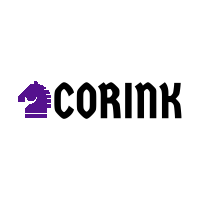Launched at the end of 2022, ChatGPT continued to make a lot of noise throughout 2023 and influenced virtually the entire tech industry. The year has been quite hectic for the robot that knows how to talk. There was no shortage of new features, but a lot of people were disappointed with the performance.
On the other hand, there were several security and copyright issues. And behind the scenes, a big drama involving OpenAI’s CEO and board, as well as a bet on the subscription model to be able to pay the bills.
ChatGPT wins GPT-4, app, plugins, images and voice
Earlier in March, OpenAI announced the release of GPT-4, a new version of the large-scale language model that gives ChatGPT the powers to understand messages and write responses.
The company has classified GPT-4 as an AI with better professional and academic capabilities, but still less capable than a human. For now, GPT-4 remains exclusive to ChatGPT Plus subscribers.
ChatGPT also gained apps for Android and iPhone (iOS), with voice recognition. The robot now relies on plugins to connect to third-party services and search the web. And finally, it became capable of generating images, thanks to the integration with Dall-E.
Some exclusive features for subscribers and businesses have also been released, such as the ability to create preset instructions and customize the AI. This has been OpenAI’s way of getting revenue.
Despite this lot of news, many people complained that ChatGPT does not give answers with the quality of before and is a bit “lazy”. OpenAI says it is investigating the issue.
Security Issues and Copyright Issues
The year of ChatGPT wasn’t just this wonderful. Artificial intelligence has also suffered from data leaks, malware creation, DDoS attacks, website blocks, and author lawsuits.
As early as January, researchers showed that OpenAI’s safeguards weren’t working properly — just ask the bot to write malware “nicely.”
The robot has also faced privacy concerns. A bug made conversation titles visible to other users. In addition, researchers discovered a “silly” attack: asking the robot to repeat words “forever” led ChatGPT to reveal personal data used in the AI’s training.
Security issues aside, copyright has also been a hindrance to OpenAI. CNN and the New York Times, for example, blocked GPTBot, a robot that collects text to train artificial intelligence. George R. R. Martin, author of A Song of Ice and Fire, and other writers have also sued OpenAI.
Sam Altman leaves and returns in less than a week
2023 was not just a year of technology for ChatGPT. OpenAI, the company that develops artificial intelligence, has found itself in the middle of a surprising corporate drama. Here’s the timeline:
November 17: OpenAI’s board of directors surprisingly announces the resignation of Sam Altman, the company’s CEO and co-founder.
November 20: Microsoft announces Altman’s hiring, and OpenAI employees threaten to quit and go their former boss’s way if he doesn’t return to the job.
November 21: OpenAI announces the return of Sam Altman as CEO and board changes.
While Sam Altman will continue as CEO, some things have changed at OpenAI. The company now has a new board of directors. One of the novelties in it is the presence of Microsoft.

